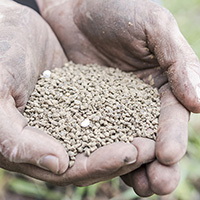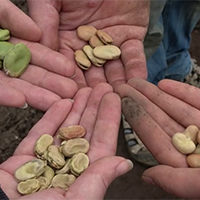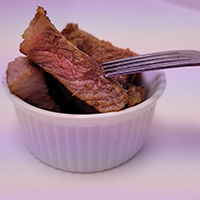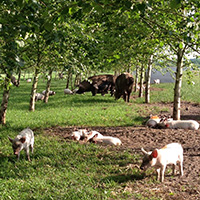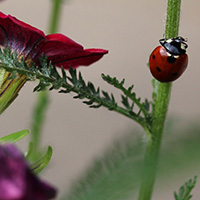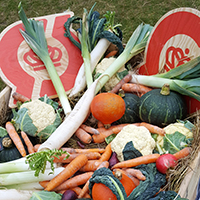Organic RDD 6
ICROFS board is pleased to announce six projects within the Organic RDD6-programme:
FertiHood
FertiHood wants to increase the yield and reduce the climate impact by improving the soil’s fertility and ability to supply nutrients by recycling waste products from agriculture and society. The aim is to create organic fertilizers and determine the effect on soil fertility and biodiversity, as well as developing advice on nutrients for increased yield, optimized economy and sustainability.
GrainLegsGo
The aim of GrainLegsGo is to increase the cropping of fresh grain legumes for human consumption, while providing environmental and climate benefits and promoting circular bioeconomy. With a cross-disciplinary approach, GrainLegsGo brings key stakeholders together, increases consumers´ awareness and promotes the cropping of traditional and novel grain legumes for fresh harvest.
GrOBEat
GrOBEat is developing a sustainable strategy for the organic beef production for a future consumption pattern that is built on quality over quantity, which according to the latest hypothesis within consumer research contributes to more healthy eating habits and increased satisfaction. The effects of the new strategy will be quantified with regard to efficiency, animal welfare, biodiversity, meat quality and sensory quality, and the overall impact on the environment.
OUTFIT
OUTFIT will contribute to the development of economically sustainable paddock designs that ensure low nutrient losses while maintaining high animal welfare, biodiversity and carbon sequestration. The project develops, demonstrates and investigates new paddock designs with diverse trees in new designs. At the same time, OUTFIT addresses one of the biggest barriers to the implementation of trees in paddocks by having a strong focus on increasing the value of the “seized” wood area.
StripCrop
StripCrop investigates the potential for strip cropping under Danish conditions by constructing two strip cultivation platforms on Lolland and at Ringkøbing, respectively. In the experiments, the project will experiment with crops with different properties in the individual stripes and investigate the effect of the stripe width on a number of parameters.
SO-FOOD
To position organics as a central tool in the development of a sustainable food production, it is necessary to know more about the consumers’ view on the connection between organic production and sustainability, as well as how consumers balance different dimensions of sustainability. In SO-FOOD, the interactions between organic consumption and the consumers’ view on sustainability as well as opinions on climate friendly technology are analysed.
